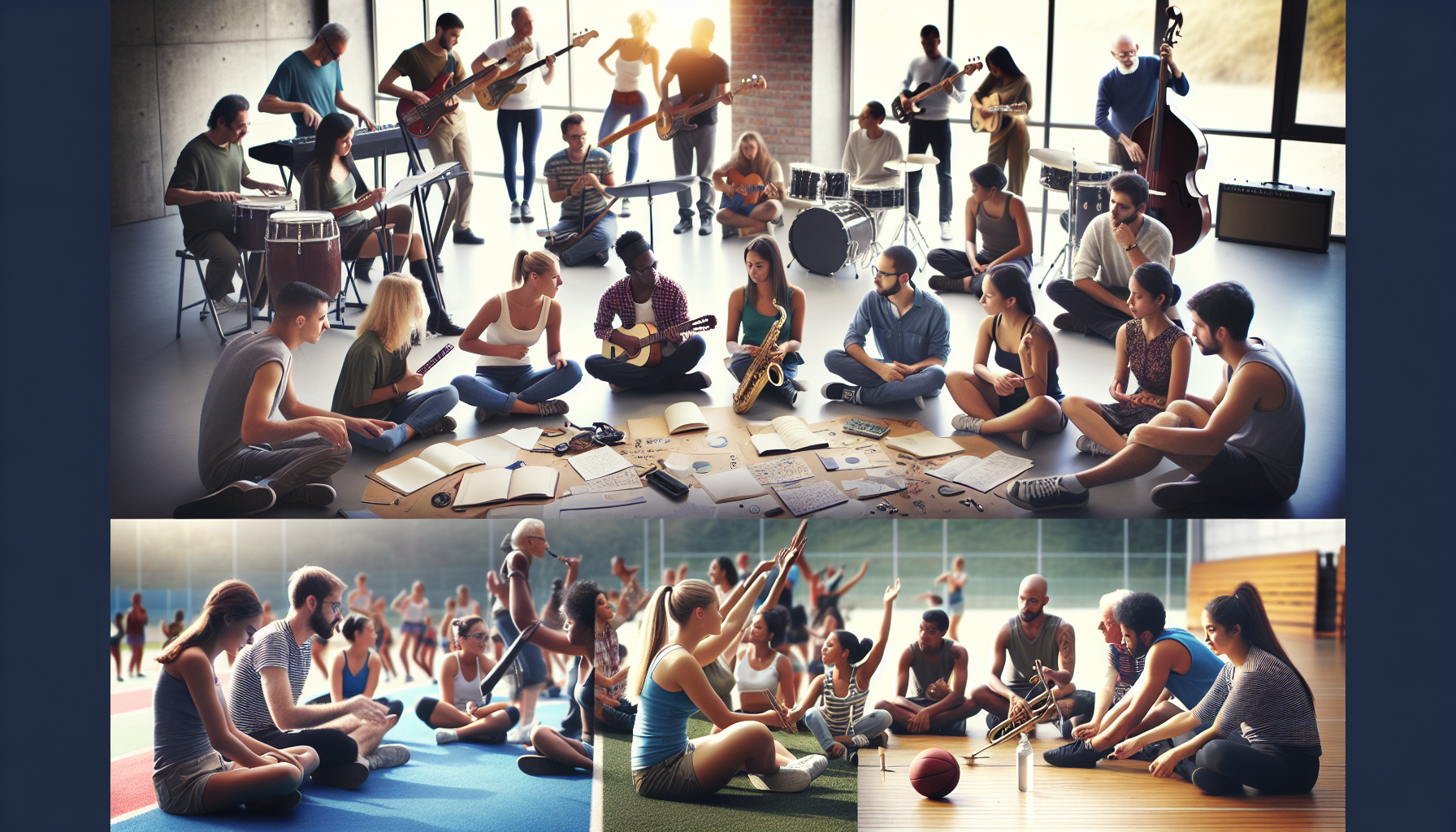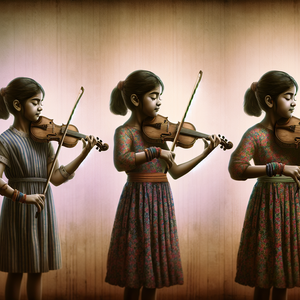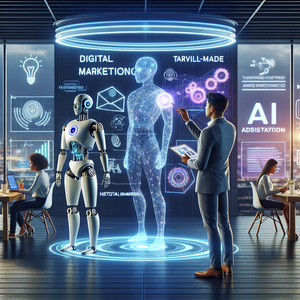Future Trends in Creative Industries: Insights from Creative-Bartow

One of the most profound trends reshaping the creative industries is the swift advancement of digital technology. Innovations such as artificial intelligence (AI), augmented reality (AR), and immersive virtual reality (VR) are revolutionizing how creative work is conceived, produced, and experienced. Recognizing the indispensable role of these technologies, Creative-Bartow has made significant strides in integrating digital tools into its workflows. For instance, the recent launch of an AI-driven design tool enables designers to generate innovative concepts tailored to client specifications. This not only accelerates the design process but also fosters collaboration, allowing clients to actively participate in the creative journey. Sarah Jameson, Creative Director at Creative-Bartow, emphasizes the transformative potential of AI: “By integrating AI into our workflow, we can explore a wider array of ideas and push our creative boundaries further than ever before.” This proactive adoption of technology positions Creative-Bartow at the cutting edge of the industry, ensuring that they remain competitive in a fast-evolving marketplace.
Sustainability in Design
With increasing global awareness of environmental issues, sustainability has become a fundamental consideration in the creative industries. Clients are increasingly prioritizing partnerships with organizations that demonstrate a commitment to eco-friendly practices. Creative-Bartow has embraced this shift by embedding sustainable design principles into its operations. A notable example is the company’s commitment to utilizing sustainable materials and energy-efficient processes in all branding and marketing projects. Recent case studies illustrate how Creative-Bartow has successfully implemented these practices, resulting in reduced environmental footprints and enhanced client satisfaction. Mark Thompson, Head of Sustainability Initiatives, articulates the company’s philosophy: “Sustainable design is not just a trend; it’s a responsibility we take seriously. We believe that creativity should not come at the expense of our planet.” Through these initiatives, Creative-Bartow not only meets client expectations but also contributes positively to environmental conservation.
The Importance of Adaptability
In an unpredictable world, adaptability has emerged as a vital trait for success in the creative industries. As market demands shift and new challenges arise, organizations must remain agile to thrive. Creative-Bartow has cultivated a culture of adaptability, empowering team members to embrace change and foster continuous innovation. This adaptability is exemplified through Creative-Bartow’s flexible project management approach, which allows teams to pivot quickly in response to client needs or market shifts. By creating an environment where employees feel encouraged to experiment and take risks, the company has observed heightened creativity and improved employee satisfaction. Jenna Rodriguez, a Project Manager at Creative-Bartow, notes, “Adaptability is ingrained in our culture. It allows us to stay ahead of trends and offer our clients the best solutions possible.” This commitment to adaptability positions Creative-Bartow as a resilient player in the dynamic landscape of creative industries.
Diversity and Inclusion as Catalysts for Creativity
Another critical trend shaping the future of the creative industries is the growing emphasis on diversity and inclusion. Diverse teams are proven to drive innovation and creativity, and Creative-Bartow recognizes that building a varied workforce is not only a moral imperative but also a strategic advantage. The company actively recruits individuals from diverse backgrounds and experiences, fostering a culture that values different perspectives. This commitment has led to more innovative ideas and solutions, as team members contribute unique viewpoints to collaborative projects. Lisa Chang, Chief Diversity Officer, articulates this philosophy: “Diversity fuels creativity. When we bring together people with different experiences, we create a richer tapestry of ideas that ultimately enhances our work.” Creative-Bartow’s efforts in promoting diversity and inclusion are not just a response to societal demands but a strategic initiative to enhance creativity and innovation across its projects.
The future of the creative industries is being shaped by digital transformation, sustainability, adaptability, and diversity. Creative-Bartow stands as a testament to how embracing these trends can lead to innovation and success. By leveraging technology, prioritizing sustainable practices, fostering a culture of adaptability, and promoting diversity and inclusion, Creative-Bartow not only prepares for the future but also sets a standard for others in the industry to follow. As we look ahead, it is clear that the creative landscape will continue to evolve, driven by those who are willing to embrace change and think differently.
AI Design Specialist
Creative agencies, tech startups, and companies focused on innovative design solutions
Core Responsibilities
Develop and implement AI-driven design tools to enhance the creative process.
Collaborate with designers and clients to tailor AI solutions that meet specific project needs.
Analyze user feedback to refine and improve AI design functionalities.
Required Skills
Proficiency in AI programming languages (e.g., Python, R) and design software (e.g., Adobe Creative Suite).
Strong understanding of user experience (UX) principles and design thinking.
Experience in machine learning applications within creative industries.
Sustainable Design Consultant
Environmental agencies, design firms, and corporations committed to sustainability
Core Responsibilities
Advise clients on integrating sustainable practices into their design projects.
Research and evaluate eco-friendly materials and processes for use in branding and marketing.
Conduct assessments to measure the environmental impact of design solutions.
Required Skills
Knowledge of sustainable design principles and certifications (e.g., LEED, BREEAM).
Strong analytical and project management skills to implement sustainability initiatives.
Excellent communication skills to educate clients on sustainable practices.
Creative Project Manager
Creative agencies, marketing firms, and tech companies focused on innovative projects
Core Responsibilities
Oversee creative projects from conception to completion, ensuring they meet client specifications and deadlines.
Facilitate collaboration among cross-functional teams, including designers, strategists, and clients.
Utilize agile project management methodologies to adapt to changing project requirements.
Required Skills
Proficient in project management tools (e.g., Asana, Trello) and methodologies (e.g., Scrum, Kanban).
Strong leadership and organizational skills, with the ability to manage multiple projects simultaneously.
Experience in the creative industry, understanding the nuances of design workflows.
Diversity and Inclusion Officer
Corporations, non-profits, and educational institutions seeking to enhance workplace diversity
Core Responsibilities
Develop and implement diversity and inclusion strategies within the organization.
Conduct training sessions and workshops to promote awareness and understanding of diverse perspectives.
Collaborate with HR to ensure diverse recruitment practices across all levels of the organization.
Required Skills
Strong understanding of diversity and inclusion best practices and legal frameworks.
Excellent interpersonal skills to engage with employees at all levels.
Proven experience in developing and executing training programs or initiatives.
UX Researcher for Emerging Technologies
Tech companies, creative agencies, and product development firms focusing on innovative user experiences
Core Responsibilities
Conduct user research to understand how emerging technologies (e.g., AR, VR) can enhance creative experiences.
Analyze user data and feedback to inform design decisions and improve product usability.
Collaborate with design teams to create user-centered design solutions.
Required Skills
Proficiency in research methodologies, including usability testing and ethnographic studies.
Familiarity with AR/VR technologies and their applications in creative industries.
Strong analytical skills and experience with data analysis tools.


